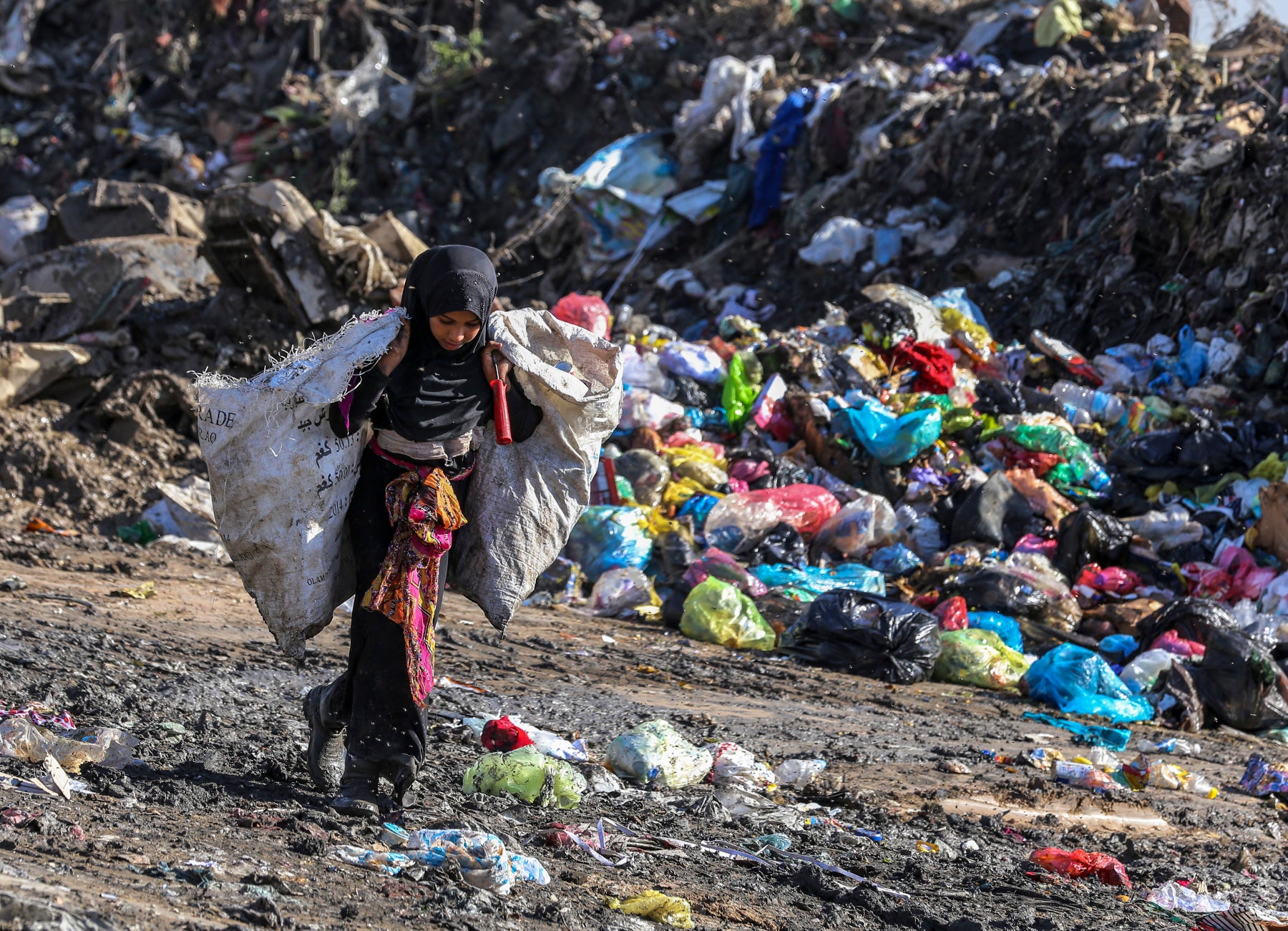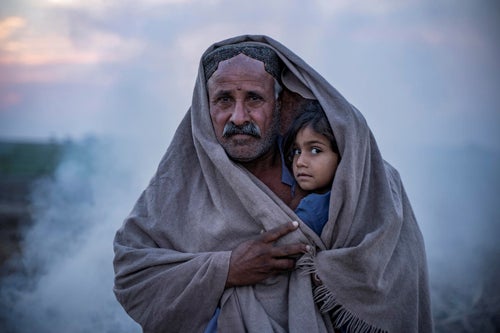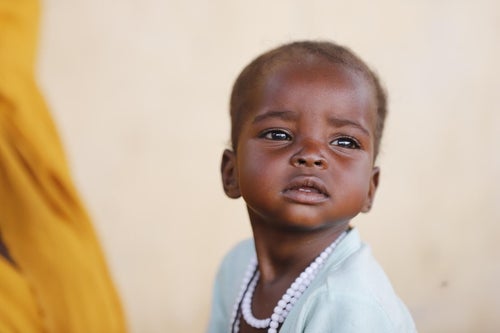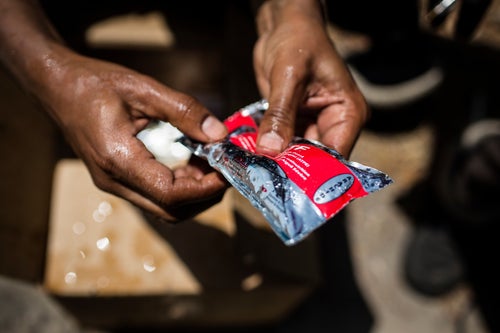Chamroeun, 6
Most mornings, Chamroeun and his mother Sareth head to the streets of Phnom Penh in Cambodia to work, collecting old cans and plastic bottles from the street to sell. At lunchtime, Sareth counts her money. If they’ve made enough, she can afford to feed her three children well.
“If I don’t have enough money after I’ve sold the cans and bottles, I buy each of them an egg,” she says, smiling. “That’s what we’re having today.”
The family live in an urban poor community near Cambodia’s capital, renting a room alongside a polluted river. The area is strewn with rubbish and defecation, leaving little space for children to play and limited access to clean water, sanitation and healthcare services.
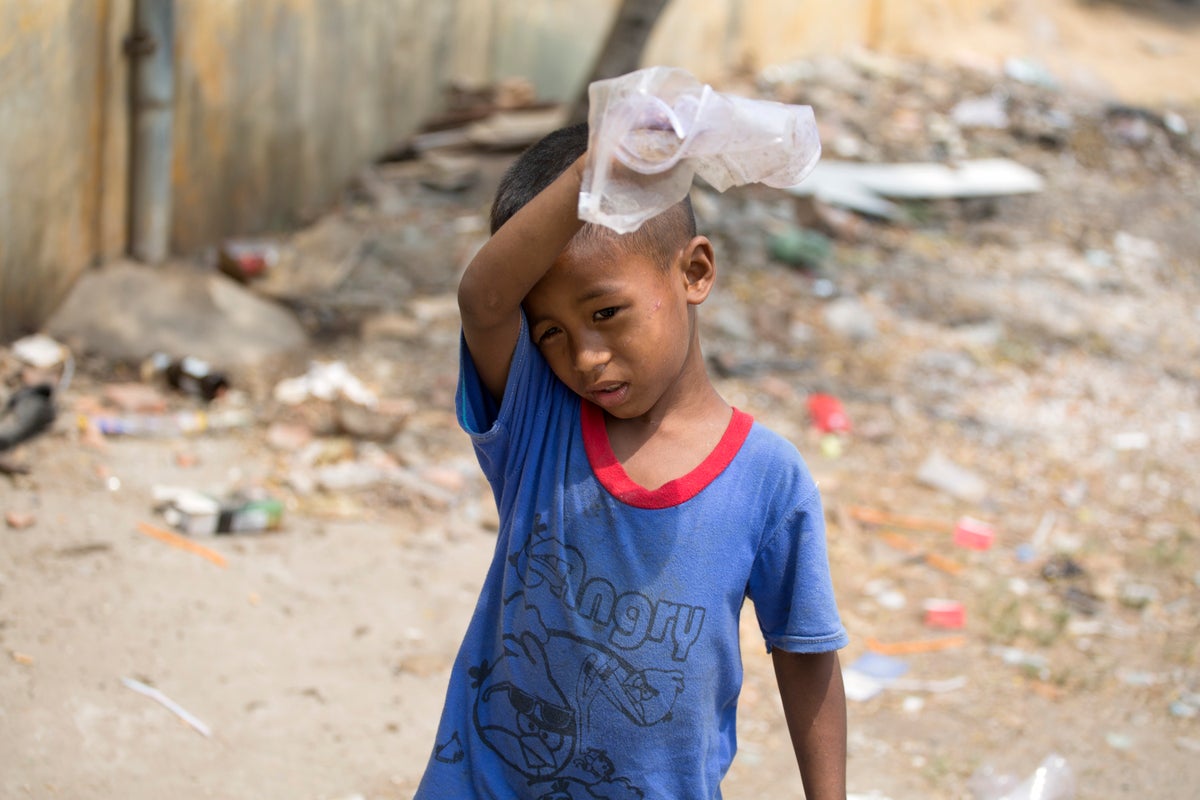
Muhammad, 15
When the harsh sun beats down on 15-year old Muhammad, he feels like his body is on fire. Smoking rubbish eats at his plastic flip-flops as he scavenges through a dump in a gated compound in Nigeria. Instead of going to school, Muhammad sifts through the smouldering heap for items he can sell.
After two or three days of this painstaking work, Muhammad collects enough to sell for the equivalent of less than one Australian dollar.
But he doesn’t sell everything he finds. “I’m always impressed with photos of children in school or playing football,” he explains. Muhammad used to be one of those children. Then Boko Haram’s violence forced his family to flee their homes and made him one of 75 million children globally whose education has been disrupted by crisis.
“I used to dream that I could be a soldier, or something like that. But now I’m not in school, so I don’t know what I could be in the future.”
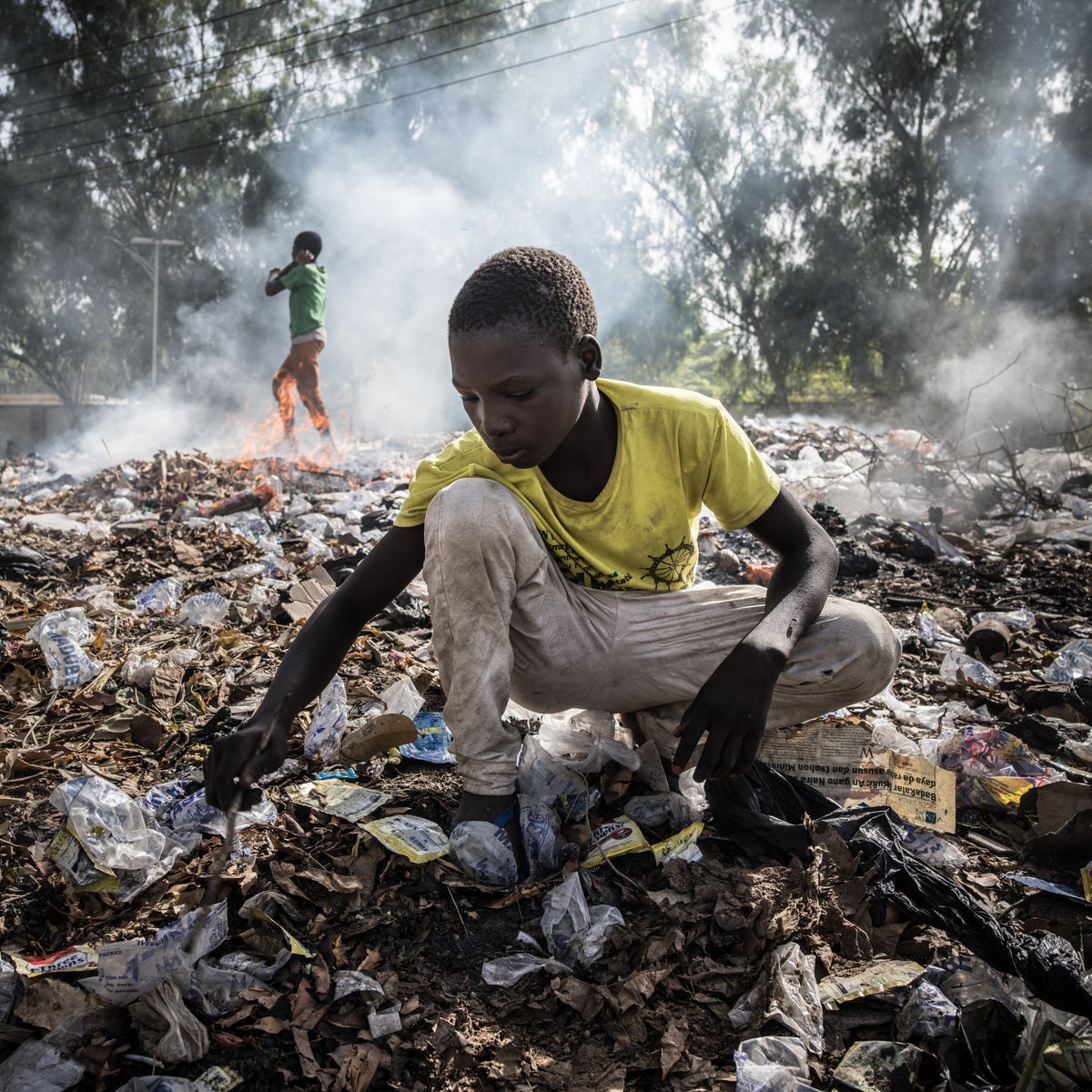
Mohammad, 14
“We used to live on a farm in Kobani. My father had a truck and worked on the farm and we went to school. I miss my school in Syria. I miss my pens and books and I’d like to have them back.”
Mohammed is only 15 years old but school is a distant memory. He and his five siblings haven’t been in a classroom since they fled Syria and came to the Kurdistan region of Iraq. Instead of studying, Mohammed works full-time changing oil and fixing axles.
He’s not alone. In Iraq, nearly 77% of refugee children from Syria have worked to support their families and 70% have missed at least one year of school.
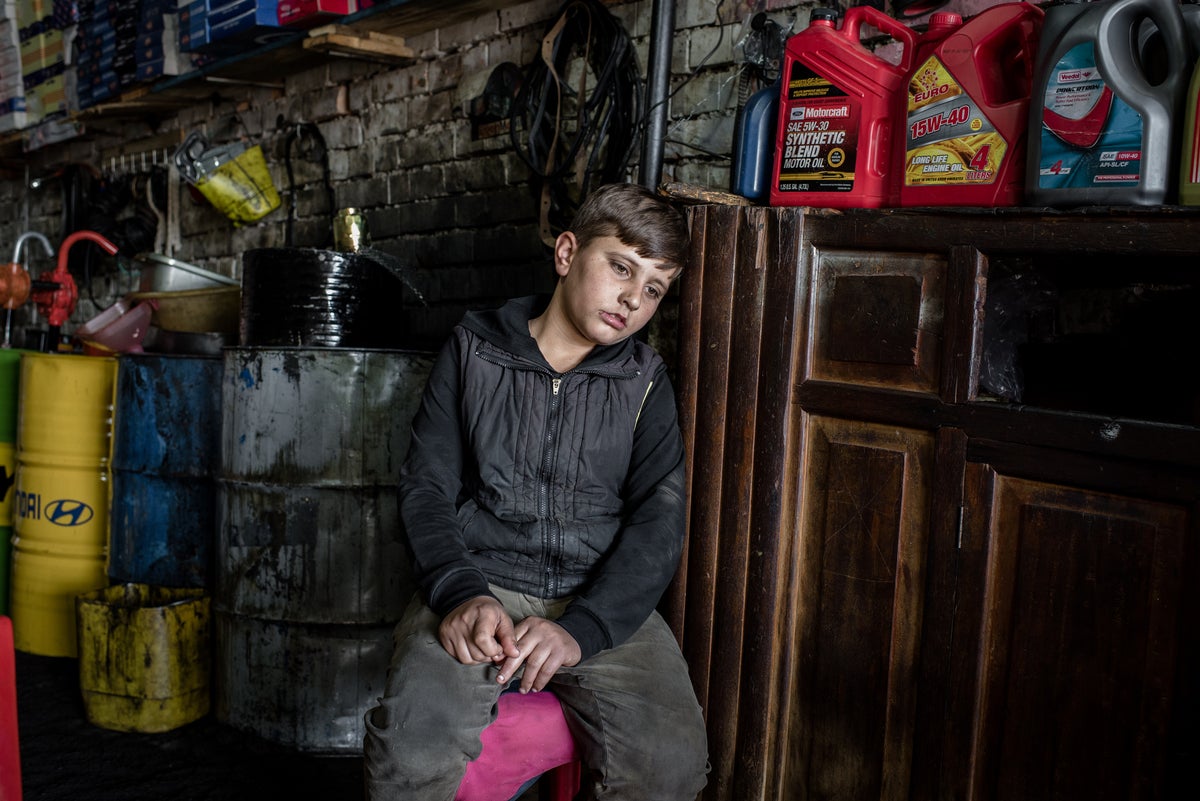
Arieful, 13
Arieful doesn’t know what he wants to be when he grows up. After dropping out of school in the first grade, not only are his opportunities limited - so are his dreams.
After a day of strenuous labour in a brick factory, Arieful can contribute less than four Australian dollars to his family’s income. His family borrows money from the factory owner in the off-season and just manages to pay their loan when they return to work.
Today, Arieful is enrolled in a UNICEF-supported programme to give children who’ve been forced out of school another chance at education. His family can’t survive without the income he generates so the programme lets him attend class after work. If he’s able to finish school, Arieful can build a better life for himself and break out of the cycle of debt trapping his family in poverty.
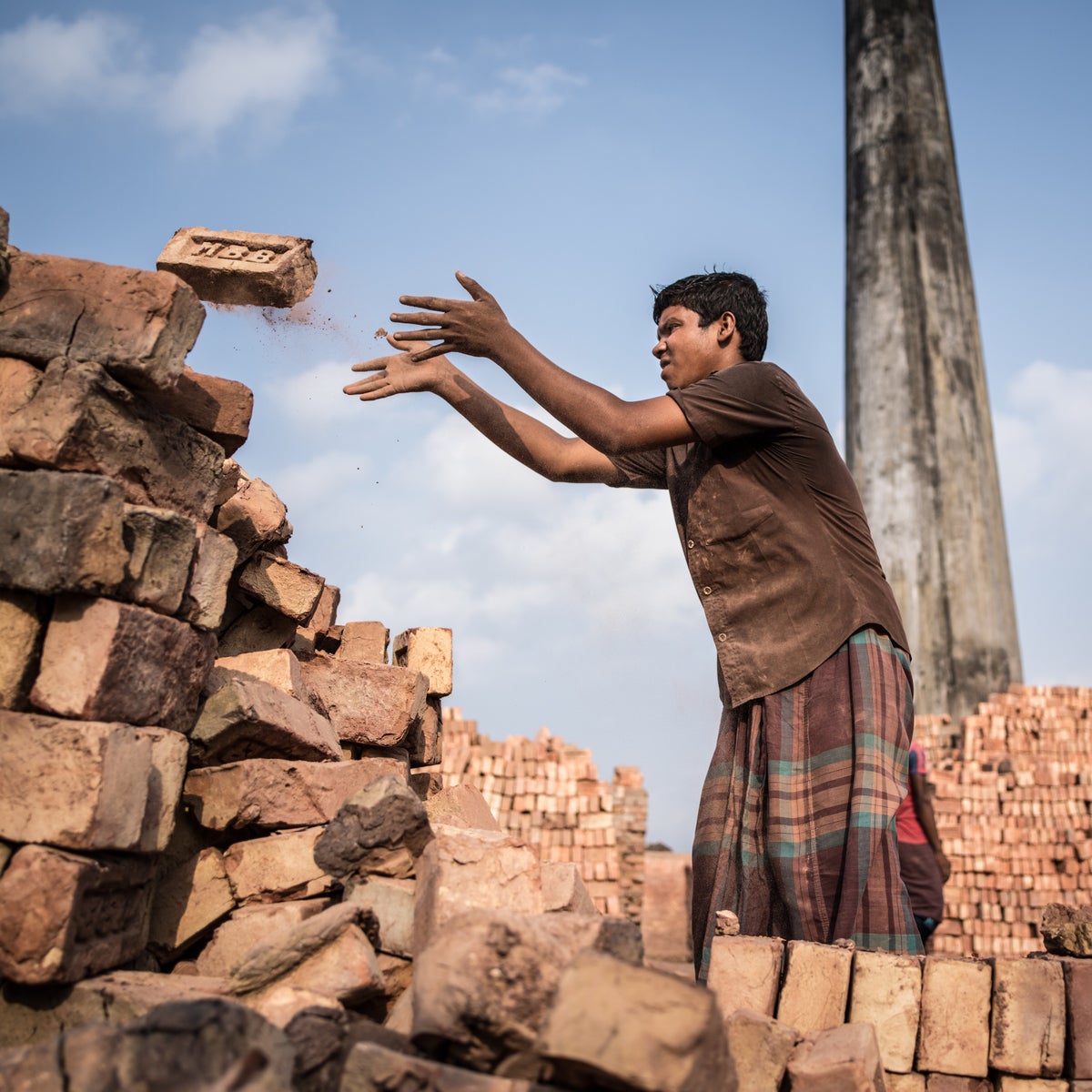
Boureima, 15
Deep in the arid Sahel belt, Boureima works in a gold mine. The work is dangerous and has stopped him going to school but he has few other options. "I started working here when I was 13 because we had no food at home."
“Every morning, when I wake up, I start working in the mine. During the day, I'm able to fill four to five sacks of stone for processing and I then sell the sacks and am able to make some money."
“Everything I earn I take home to my parents.”
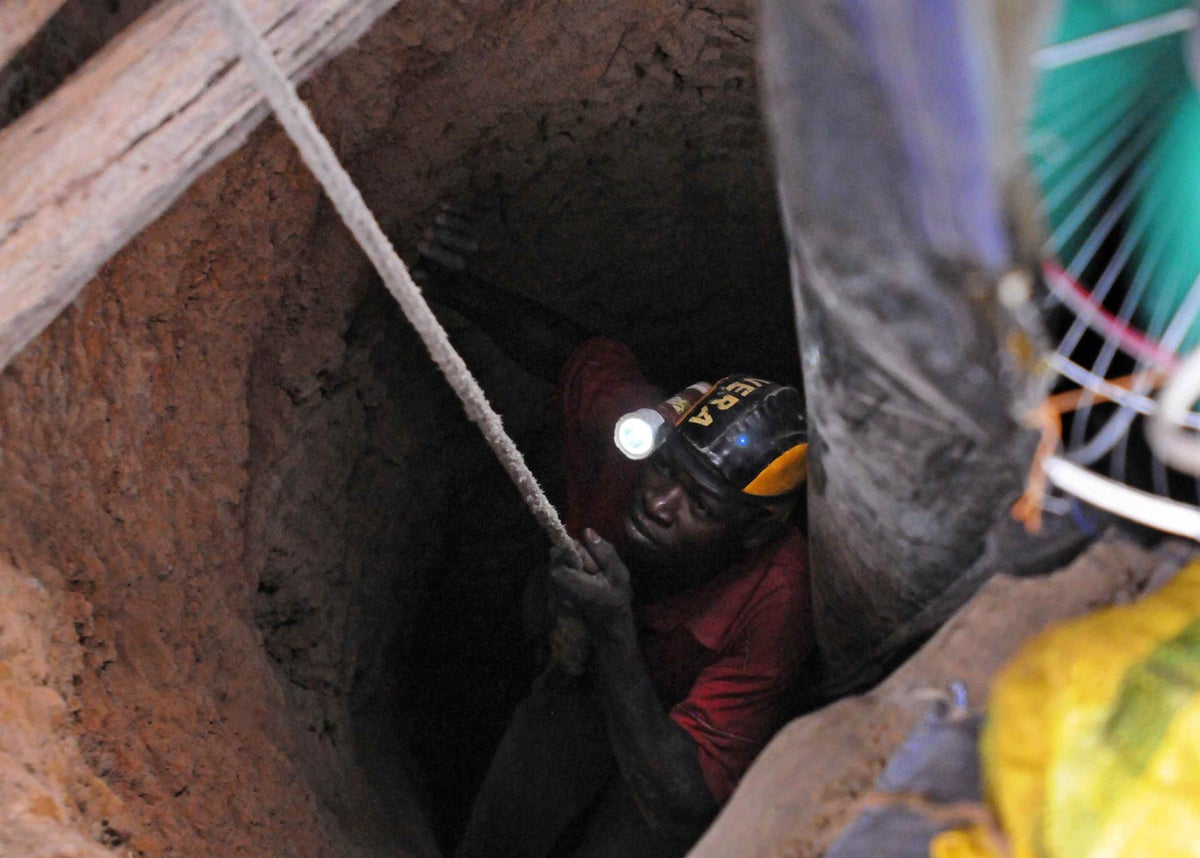
Help children break out of labour
UNICEF tackles the causes of child labour by protecting vulnerable children through conflict and natural disaster, helping keep children safe in school and by supporting families to break out of poverty. Monthly support from our Global Parents allows UNICEF to help children out of labour and exploitation by:
- Helping parents afford to send their children to school. In Burkina Faso, a UNICEF-supported education project helped 15,000 child workers like Boureima leave dangerous jobs in gold mines.
- Keeping children safe at home after emergencies. After the Nepal earthquakes, UNICEF worked with the government to help 9,000 children trapped in child labour get safely back home to their families.
- Strengthening government laws and policies to protect children from child labour. In Bolivia, UNICEF helped set a minimum age for employment.
You can support this and all of UNICEF's work to protect the rights of children by becoming a Global Parent today. Your monthly gifts will help to protect children from child labour and exploitation, and to deliver lifesaving water, health and nutrition supplies wherever the need is greatest.
Related articles
Stay up-to-date on UNICEF's work in Australia and around the world



